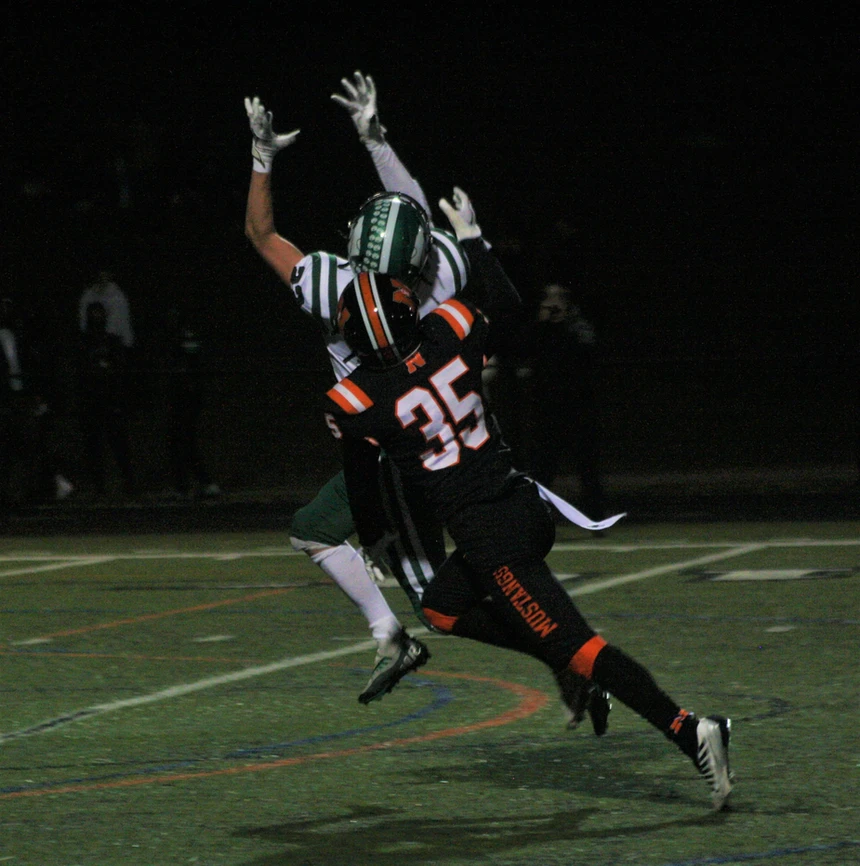Iconic coach’s final tourney
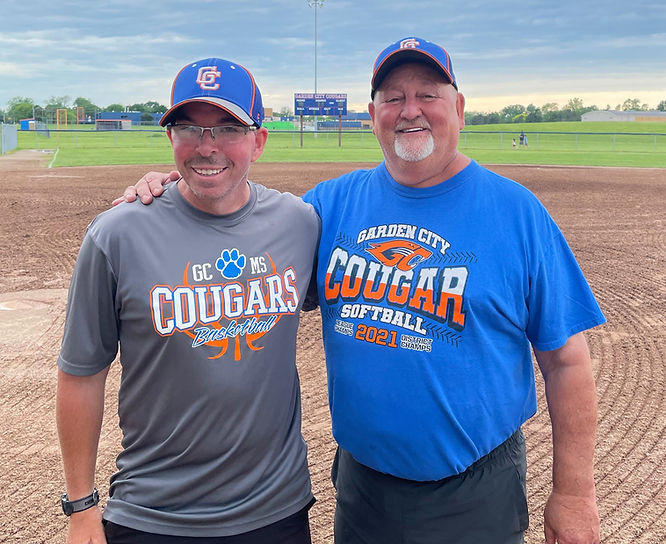
Recently-retired Barry Patterson (right) is pictured with assistant coach Chris Griffith.
Widely-admired Garden City mentor coaching his last season with dignity, success
Sitting in a Garden City High School softball dugout on a recent stormy afternoon, longtime Cougars head coach Barry Patterson talked about the affection he felt for the massive oak tree that soars above the ground behind the field’s backstop.
“That tree is a fixture here; it’s a lot older than you or I,” Patterson said, smiling as he looked up at its leafy branches. “If anyone ever talks about taking it down, I’ll become a tree-hugger and strap myself to it.”
In a lot of ways, Patterson is a lot like the oak – a stabilizing Garden City mainstay who for decades has epitomized the city’s blue-collar persona while engineering a pride-filled, success-saturated softball program.
Heading into the Cougars’ Division 1 regional semifinal game against host Allen Park in June – this is Patterson’s final season as the Cougars’ leader, he confirmed – Patterson had notched 846 wins (GC is 30-8 this season) throughout a 35-year head-coaching career – a figure that places him 15th on the Michigan High School Athletic Association’s all-time softball wins list and 11th for coaches who have registered all their victories for one school.
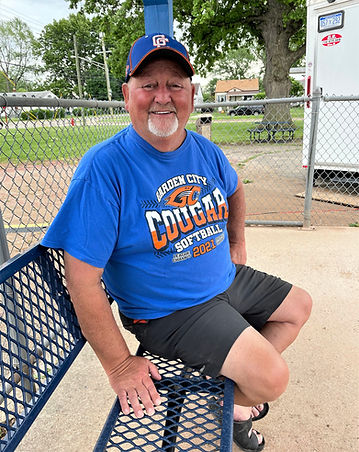
And like the oak, Patterson, 61, is enduring a long and dangerous storm. Diagnosed with prostate cancer in 2008, the popular coach revealed recently that the cancer has metastasized, spreading to his bones and lymph nodes.
His voice cracking for only a second or two, Patterson explained he’s being treated with his second form of chemotherapy, the final treatment in his oncology doctors’ cancer-fighting toolbox.
“I was originally diagnosed in 2008, but they told me they caught it early,’ Patterson said. “I thought I was cured, but it came back four or five years ago. It has since metastasized. Who knows, maybe they’ll come up with another treatment that can lengthen my life before it’s too late. Honestly, though, if it’s quality of life versus longevity, I’d choose quality. I don’t want to just hang on for a few extra years if I’m severely limited in what I can do.”
Patterson said his wife Diana, who retired as an assistant principal at Northville High School in 2021, has been his biggest booster throughout his health crisis. He also gave big-time props to members of his Garden City coaching staff, who have stepped up when he was too fatigued to take the field.
“I feel good,” said Patterson, a positivity-spreading optimist. “ I still set up practices and call players aside when I see something they need to work on. I don’t have the energy to hit balls during drills anymore, but I can still teach and share my knowledge. I usually have two good hours a day and I try to save them for practices and games.”
It was obvious throughout a close-to-hour-long interview that Patterson would prefer to talk about his softball program – and the players and community members who have helped elevate it to gold standard – than himself.
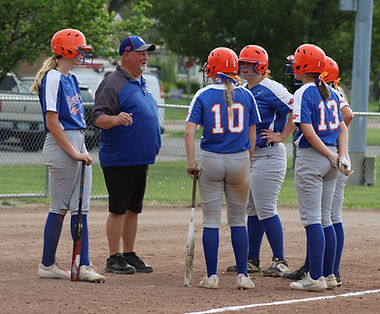
Although its population has decreased significantly since Patterson coached his first game in 1987, the town’s pride and dignity have persevered, he asserted. The high school softball program is front and center in GC’s unwavering tenacity, continuing to win consistently against much larger schools that are magnets for the game’s top talent in the current era of school-of-choice domination.
“Garden City is not an affluent community, but really good people live here,” he said. “It’s like a downriver-type city: blue collar, the parents support their kids 100%. If you can provide something stable, something they can buy into like we’ve tried to do, it’s a place where a program like ours can still be successful.
“Nowadays, families with talented athletes are moving to cities where the parents feel they can be more successful, and I don’t blame the parents for that. We still get hard-working, talented kids who believe in the program. Our mantra has always been: Don’t worry about the opponent, let them worry about you.”
The Cougars are often at their best in the role of underdog.
“We’ve beat some really good teams over the years in the regionals – teams that have probably been more talented than us – because our girls don’t look at the scoreboard during the game,” Patterson emphasized. “When it gets to the fifth inning and the more talented team is tied with us or we’re up one run, they’re the ones pressing, thinking, ‘How are we losing to Garden City? We beat them 12-0 earlier in the season’. ”
Blessed with a level of humility that matches his coaching skills, Patterson deferred much of the program’s triumphant nature to his dedicated roster of assistant coaches, including Chuck Drewitt, Al Russell, Rob Spellman, Chris Griffith, Doug Boston, Cory Dolan and the late Bob Bako, to name a few.
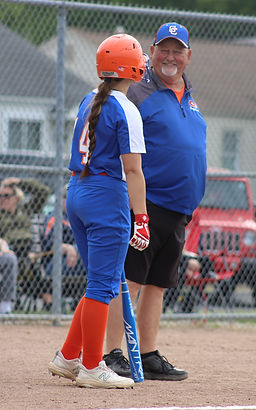
He also praised his coaching role models: Marshall Henry and Jim Lenic.
“Marshall and Jim taught me the importance of being fair, equitable and to emphasize to my players that excelling in the classroom is more important than excelling on the field,” he said.
“I love coaching … the strategy, the intricacies involved. But the most important thing softball has given me is the player-to-coach, coach-to-coach, coach-to-parent relationships. These relationships are the keys to my life, not just my coaching.”
As he talked, the giant oak’s leaves blew in the post-storm breeze, its sturdy trunk as dignified as the coach who has taught countless young girls priceless life lessons in its shadow since 1987.
Special thanks to Diana Patterson for contributing photos for this article.
If you have a story idea for SocialHouseNews.com, please contact Editor-In-Chief Ed Wright at edwright@socialhousenews.com or 734-664-4657.



